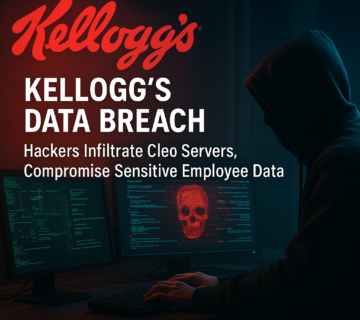
Kelloggs Data Breach: Hackers Infiltrate Cleo Servers, Compromise Sensitive Employee Data
WK Kellogg Co. experienced a significant data breach when cybercriminals infiltrated the servers of their third-party vendor, Cleo, compromising sensitive employee information. The CL0P ransomware group exploited a zero-day vulnerability in Cleo's software, gaining access to data like names and Social Security numbers undetected for nearly three months. While the initially reported impact involved a small number of individuals, the nature of the stolen data suggests a potentially wider reach, prompting Kelloggs to offer identity protection services and implement enhanced security measures while highlighting crucial lessons about vendor and vulnerability management. ... Read More
